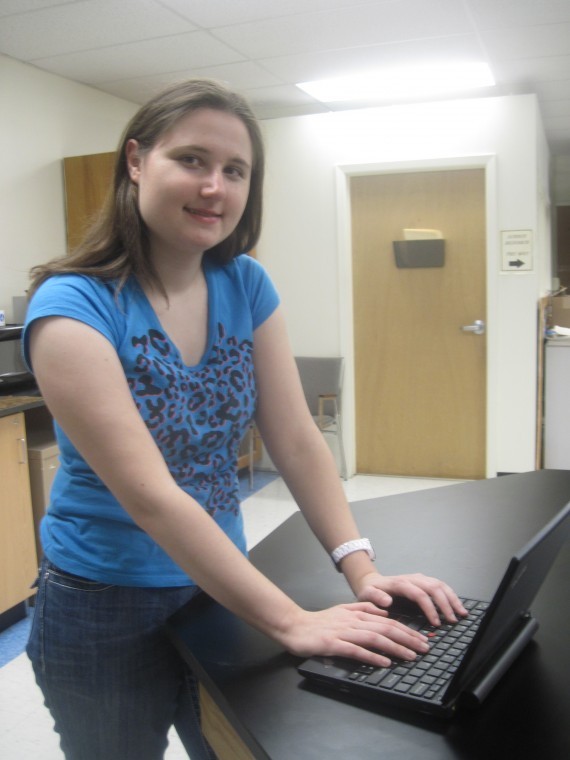Herricks High School senior Sarah Chapin was recently recognized as a semifinalist in the Siemens Math, Science and Technology Competition for a research project she conducted over the summer at Stony Brook University.
Chapin, who has been participating in the honors science research program at Herricks for the past four years, will receive a $1,000 award for her project. Her mentor over the four years at Herricks has been science research teacher Renee Barcia.
Chapin was one of 317 students recognized as semifinalists from among more than 1,500 students who submitted projects for the Siemens competition.
The objective of her research was to identify chemical compounds that could inhibits the growth of clostridium botulinum bacteria that causes botulism, a rare illness that is usually carried in improperly canned or preserved food. And there are seven different sero types for botulinum – and an antidote has yet to be discovered.
“The problem is that there hasn’t been an inhibitor for any of them,” Chapin said. “The best thing is to find one that’s good for all of them.”
Chapin approached Stony Brook with her project idea after reading that the research laboratory there had been given a sizable grant to conduct research on the botulism inhibitors.
Chapin’s first step in the research was to select 800,000 molecules of chemical compounds and run them through a computer program set up to determine their potential efficacy against the bacteria. After screening that database of molecules, she narrowed the field down to 100 compounds and then put the substances in plates with a portion of the toxin to see if its growth was inhibited.
Out of the field of 100 compounds, she came up with nine that seemed to be effective – a great result in percentages for such research. Based on compounds identified by a collaborator at another research lab, Chapin ultimately designed six other molecules by modifying derivatives of the compounds.
She spent eight weeks on the pain-staking research, spending seven hours in the lab for five days a week over that time. Then she wrote up her results in a research paper that she submitted for the Siemens competition.
“I like the problem-solving aspect. In school, we receive information. Research is applying information in the real world that might actually help somebody,” Chapin said. “The testing worked and the inhibitors were successful.”
The next step would be to synthesize the compounds under laboratory conditions and find if they’re as effective in that context. Chapin isn’t sure yet whether she’s going to take that next step. But her goal certainly is to help other people.
She plans to major in biomedical engineering as an undergraduate in college, with the goal of going to medical school.
Chapin said she was pleased to gain the recognition of the Siemens award.
“It was a lot of work. You always feel that the research you’re doing is important, but it’s nice when someone else says so,” she said.
Science hasn’t been her only field of interest. Her father, Kenneth, is a music teacher, and she knows how to play the violin and viola. She’s also played softball in high school, but she doesn’t have time for music or sports right now.
“I’m a senior,” she said. And next, she’ll be preparing for the national Intel Science Competition.



